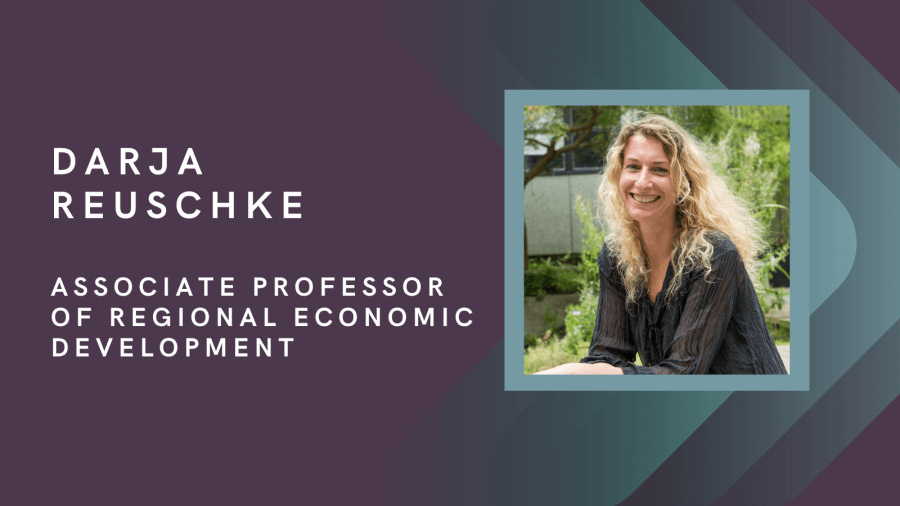Darja discusses her research interests including work, employment, cities and regions.
I am interested in interdisciplinary perspectives on work, employment, cities and regions. New forms and locations of work and businesses are a central focus of my research.
I have investigated how housing markets, regional and local economic conditions, households and gender influence self-employment and the start-up, location and growth of home-based businesses and micro enterprises. A fundamental question of this research has been how factors of housing, mortgage finance, neighbourhood and social life interact with more traditional economic factors to influence business start-ups and entrepreneurial decisions.
Theoretically, this research has investigated concepts of local entrepreneurship, creativity and urban amenities and how these apply to micro businesses and home-based businesses. I have developed ideas for this research with a grant from the Regional Studies Association (2012-13) which I have further developed in the WORKANDHOME project (2015-2021) funded by the European Research Council (ERC) of the European Commission.
Home-based working
Another focus of my research has been on the motivations, inequalities and outcomes of home-based work which I have investigated in relation to self-employment and paid employment. I have been particularly interested in wellbeing questions and individual productivity of home-based work. With the stark increase in the level of working at home and research interest in remote working during the COVID-19 pandemic, I have contributed survey questions on working at home and productivity to the Understanding Society COVID-19 panel survey. Research findings drawn from these survey data have become an important evidence base for information on homeworking and productivity in the UK including for the Bank of England and the future remote working strategy in Wales. The Senedd’s Economy, Infrastructure and Skills (EIS) Committee has been particularly interested in my work on the spatial implications of remote working and coworking. Based on this work, at City-REDI, I would like to further shape interdisciplinary perspectives on remote working, specifically in relation to the question of how, in the future, more local and sustainable working styles can be developed around homeworking and coworking. Could, for example, the idea of local employment hubs be a solution to more sustainable work/lifestyles?
Given that the daytime population is increasingly challenging to measure due to hybrid working, new methodologies and data to detect economic activity and to measure location (of firms and people) are increasingly important for regional and local economic development and policy-making. How residential location and firm location will change in the future given increased hybrid working and digitalisation, is an important question for city-regions, which I have discussed, for example in a blog for the Regional Studies Association: The surge in homeworking and new key issues for regional studies. With Jed Long from Western University (Canada), I used innovative methodological designs to locate entrepreneurial activities through Twitter data and to measure location and mobility using GPS smartphone data. Building on City-REDI’s expertise in data analysis, I am keen to explore the potential of non-conventional data sources for understanding the current changes in employment and what these mean for cities, regions and local labour markets.
Researching Covid-19
I have studied the various detrimental consequences of the Covid-19 pandemic in relation to self-employment(funded by the ESRC), homeworking and health and wellbeing. One particularly important aspect of my work was the estimation of the impact of Long Covid on the UK workforce. Long Covid is a term to describe Covid-19 symptoms that last for more than four weeks after being infected with the Covid-19 virus. Our research paper (with City-REDI’s Donald Houston) attracted attention in various media reaching one of the highest attention scores ever recorded via Altmetric. This underlines the importance of studying how health and wellbeing impact employment outcomes. This is a research focus that features strongly in City-REDI’s research portfolio to which I would like to contribute rigorous research in the future.
This blog was written by Darja Reuschke, Professor of Regional Economic Development, City-REDI / WMREDI, University of Birmingham.
Disclaimer:
The views expressed in this analysis post are those of the authors and not necessarily those of City-REDI / WMREDI or the University of Birmingham.

